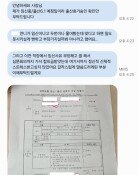`US politics allows Abes address to Congress in return for greenbacks,` says columnist
`US politics allows Abes address to Congress in return for greenbacks,` says columnist
Posted April. 21, 2015 07:26,

In the run-up to Japanese Prime Minister Shinzo Abes address to U.S. Congress on April 29, an influential media outlet ran a column that U.S. politics accepted Abes address due to Japans lobbying. Many have believed that the Japanese government lobbied Washington directly and indirectly for the Japanese prime ministers address. However, it is unusual that such a claim that is officially raised.
Eamonn Fingleton (see photo), an East Asia expert, said in his column titled Dissing Comfort Women, House Speaker John Boehner Panders To Japan`s Most Toxic Prime Minister on Forbes on Sunday (local time). What explains Boehners decision? Money. Congress now runs ever more explicitly on money and few nations are more generous in showering Congress with greenbacks than Japan, the journalist said. Of course, it is technically illegal for foreigners to fund American political causes. But any foreign corporation can perfectly legally funnel money into American politics via a U.S. subsidiary. With huge investments in the U.S. automotive and electronics industries, corporate Japan is uniquely well placed to influence Congress.
Mr. Fingleton, a former editor of Forbes and the Financial Times, said, Abe is the first Japanese Prime Minister to be accorded the honor (giving an address to Congress) yet he is arguably the least deserving since 1945. He added, Invitees join an exclusive club that has included such esteemed figures as Winston Churchill, Charles de Gaulle, and Nelson Mandela. Now, the currency is being debased.
Mr. Fingleton said, At other times he seems to want to unapologize previous leaders apologies. This attitude appears like an Orwellian insult to millions of people Asians, Americans, Western Europeans, and Russians who either suffered directly from such atrocities or whose parents or other relatives did. He also said, Among other things Abe has suggested that the Imperial Japanese Armys sex slaves generally known by the euphemism comfort women were common prostitutes. A mountain of evidence indicates otherwise. There is, for instance, the testimony of Dutch housewives captured in the Netherlands East Indies who were forced into sexual servitude in the early 1940s. He added, So far as I am aware, their evidence has never been challenged even by the most fanatical Japanese rightists. (Abes remark) is like adding salt to injury in that previous Japanese leaders made public apologies and asked for forgiveness.
Mr. Fingleton, born in Ireland in 1948, is a journalist who spent 27 years in monitoring and writing articles on East Asian economics from a base in Tokyo. He is also the author of In Praise of Hard Industries, which was published in Korea in 2004.
Criticism is growing with Prime Minister Abes address to Congress is approaching, a diplomatic source in Washington said. If Abe covers past history issues theoretically, it could cause significant backlash.
ddr@donga.com
Headline News
- N. Korea launches cyberattacks on S. Korea's defense companies
- Major university hospital professors consider a day off each week
- Italy suffers from fiscal deficits from ‘Super Bonus’ scheme
- Inter Milan secures 20th Serie A title, surpassing AC Milan
- Ruling and opposition prioritize spending amid tax revenue shortfalls







